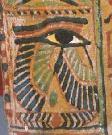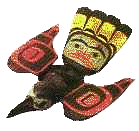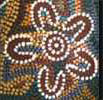
Solar FolkloreFor centuries, humans have attempted to explain the Sun in terms of their own worldviews. The Sun can be a god, a demon, a mischievous spirit, an omnipotent creator or a ruthless taker of life. Whatever role it plays, most cultures have recognized the significance of the Sun as prime controller of all life on Earth. As you read these, remember they were not stories created to entertain, nor were they written for children. These myths, legends and accounts represent their culture's worldview, a peoples' attempt to explain, understand, and come to grips with nature's phenomena. To the people who tell them, these reports are as relevant and true, as deeply meaningful and spiritually important, as any scientific explanations. Indigenous American · Indigenous Australian · Mesopotamia · Judeo-Christian · Other Cultures · Ancient Observatories · Rock Art · Solar Symbolism · Great Quotes · Other Resources
For
more Indigenous American starlore, see Starlore
of Native America. Mezo & South American
No one knows what the earliest humans thought about the sky, for no records exist. However, the cultures of the Australian Aborigines, which have been passed down via legends, songs, and dances for more than 40,000 years, give us a glimpse of how these earliest known astronomers may have interpreted the Sun and stars. The Indigenous people of Australia, the Aboriginal and Torres Strait Islanders, represent the world's oldest and most long-lived cultures, a heritage rich in wisdom and insight. Before European intrusion, indigenous peoples inhabited most areas of the Australian continent. With more than 700 separate languages, distinctive lifestyles, and religious and cultural traditions in different regions, these adaptable and creative peoples had complex social systems with highly developed traditions reflecting their deep connection with the land and environment. Their view of the cosmos is based on their concept of the Dreaming -- a distance past when the Spirit Ancestors created the world. Aboriginal songs, dances, and tales convey how, long ago, the Spirit Ancestors created the natural world and entwined the people into a close interrelationship with nature and the sky. For more information see the Australian Museum's website Indigenous Australia.
Ancient Egypt African Cultures China Classical Greece and Rome
Inuit (Greenland) Japan Norse Polynesia/Hawaii 
 Rock Art Sundagger Rock Art and other Ancient Solar Imagery Solar Symbolism 
Solar Symbolism, Ancient and Modern
Great
Quotes
"The Sun is a mass of fiery stone, a little larger than Greece." --Anaxagoras 434 BC
Credits:
Featured in the 31 January 2005 issue of whatsfordinner.net, a daily, online magazine that presents fun, educational topics for parents and children to discuss during their family dinner. |










